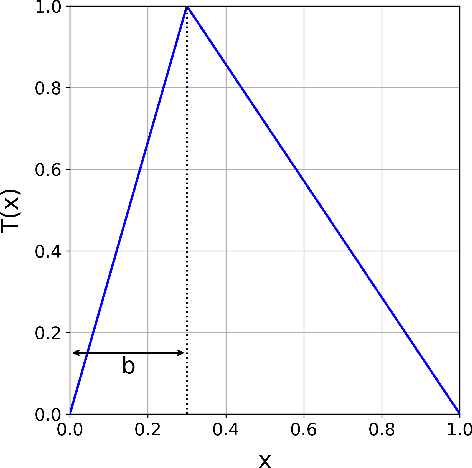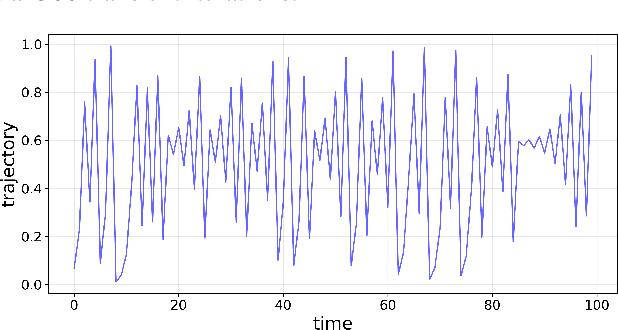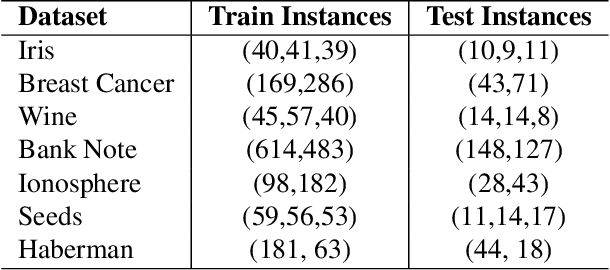Chaotic Map based Compression Approach to Classification
Paper and Code
Feb 17, 2025



Modern machine learning approaches often prioritize performance at the cost of increased complexity, computational demands, and reduced interpretability. This paper introduces a novel framework that challenges this trend by reinterpreting learning from an information-theoretic perspective, viewing it as a search for encoding schemes that capture intrinsic data structures through compact representations. Rather than following the conventional approach of fitting data to complex models, we propose a fundamentally different method that maps data to intervals of initial conditions in a dynamical system. Our GLS (Generalized L\"uroth Series) coding compression classifier employs skew tent maps - a class of chaotic maps - both for encoding data into initial conditions and for subsequent recovery. The effectiveness of this simple framework is noteworthy, with performance closely approaching that of well-established machine learning methods. On the breast cancer dataset, our approach achieves 92.98\% accuracy, comparable to Naive Bayes at 94.74\%. While these results do not exceed state-of-the-art performance, the significance of our contribution lies not in outperforming existing methods but in demonstrating that a fundamentally simpler, more interpretable approach can achieve competitive results.
 Add to Chrome
Add to Chrome Add to Firefox
Add to Firefox Add to Edge
Add to Edge